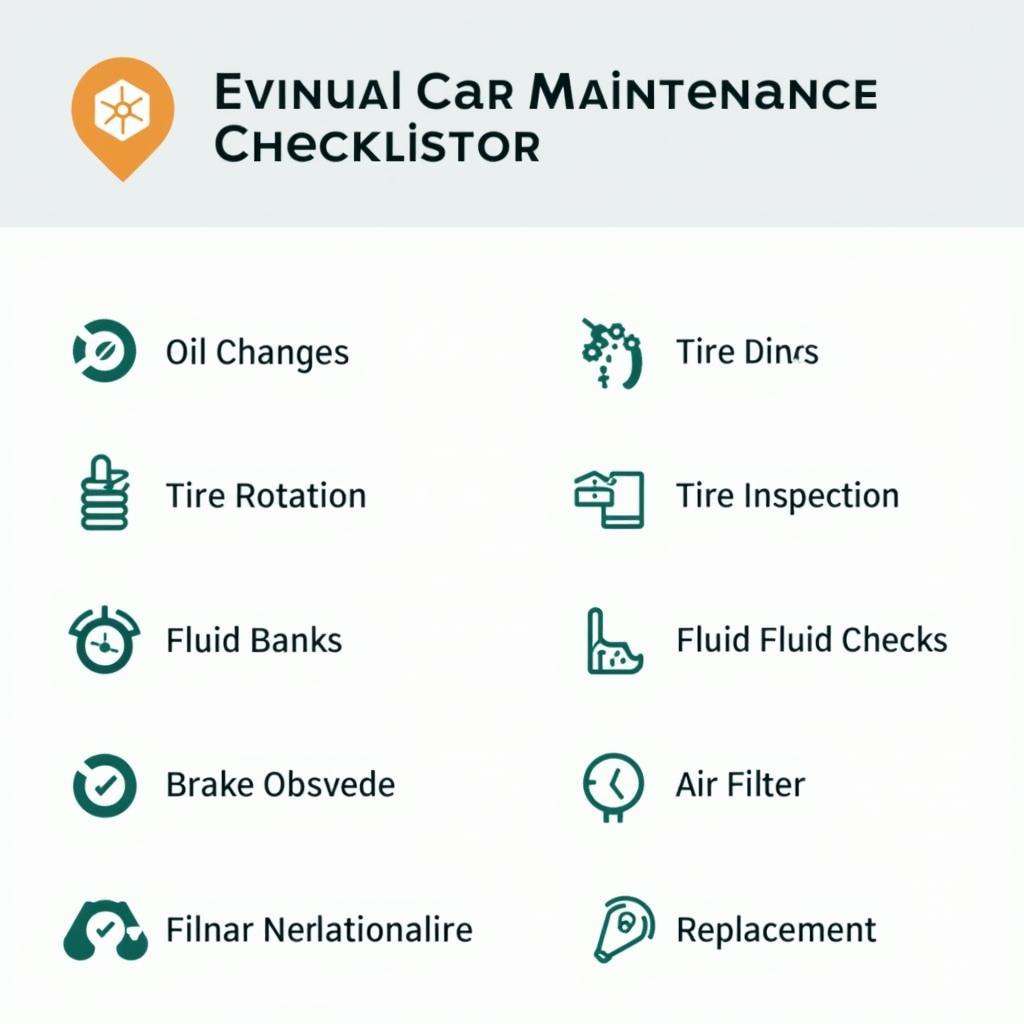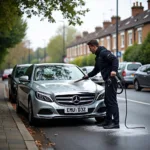Understanding car service can feel overwhelming. This Car Service Crash Course aims to equip you with the essential knowledge you need to navigate the world of automotive maintenance, from routine checkups to complex repairs. Whether you’re a new driver or a seasoned car owner, this guide will provide valuable insights to help you keep your vehicle running smoothly and safely.
Why a Car Service Crash Course is Essential
Regular car service is crucial for maintaining the safety, reliability, and longevity of your vehicle. Ignoring essential maintenance can lead to costly repairs down the line, decreased fuel efficiency, and even dangerous driving conditions. This crash course will cover the basics of car maintenance, helping you understand what needs to be done and when. Knowing the fundamentals allows you to make informed decisions, communicate effectively with mechanics, and avoid unnecessary expenses.
Understanding Your Car’s Needs
Every car has specific maintenance requirements outlined in the owner’s manual. This valuable resource details the recommended service intervals for various components, including oil changes, tire rotations, and brake inspections. Familiarizing yourself with your car’s specific needs is the first step in this car service crash course. It’s like understanding your body’s nutritional needs – you wouldn’t feed a marathon runner the same diet as a sedentary person, and the same logic applies to your car.
Decoding the Dashboard Lights
Your car’s dashboard is equipped with a variety of warning lights, each designed to alert you to potential issues. Understanding these lights is vital for preventing further damage and ensuring your safety. From the check engine light to the tire pressure monitoring system (TPMS) light, this car service crash course will decipher the meaning of these indicators and explain the appropriate actions to take. Ignoring a warning light is like ignoring a fire alarm – it could lead to serious consequences.
Car Service Crash Course: Key Maintenance Tasks
This section delves into the key maintenance tasks covered in our car service crash course, providing a comprehensive overview of each.
Oil Changes: The Lifeblood of Your Engine
Regular oil changes are paramount for keeping your engine running smoothly. Oil lubricates the engine’s moving parts, reducing friction and preventing wear and tear. Over time, oil breaks down and becomes less effective, increasing the risk of engine damage. This crash course emphasizes the importance of adhering to the manufacturer’s recommended oil change intervals, which vary depending on the vehicle and driving conditions.
Tire Maintenance: Ensuring a Smooth and Safe Ride
Proper tire maintenance is crucial for both safety and fuel efficiency. This car service crash course covers the importance of regular tire rotations, pressure checks, and tread inspections. Maintaining proper tire pressure ensures optimal handling and fuel economy, while regular rotations promote even wear and extend tire life. Ignoring tire maintenance can lead to blowouts, reduced handling, and decreased fuel efficiency.
Brake Inspections: Stopping Power You Can Rely On
Your brakes are arguably the most important safety feature in your car. This car service crash course emphasizes the need for regular brake inspections, including checking brake pads, rotors, and fluid levels. Worn brake pads can significantly reduce stopping power, increasing the risk of accidents. Regular inspections can help identify potential problems early on, ensuring your brakes are always in top condition.
Beyond the Basics: Advanced Car Service
While the basics covered in this car service crash course are essential, there are other important aspects of car maintenance to consider. These include regular inspections of your car’s cooling system, electrical system, and transmission. This section will provide a brief overview of these advanced topics, helping you gain a more comprehensive understanding of car service.
Cooling System: Keeping Your Engine Cool Under Pressure
The cooling system plays a vital role in regulating your engine’s temperature, preventing overheating and potential damage. This includes the radiator, water pump, and thermostat. Regular checks of coolant levels and hoses are crucial for ensuring the system is functioning correctly.
Conclusion: Your Journey to Car Maintenance Mastery
This car service crash course has provided you with a foundational understanding of automotive maintenance. By implementing these principles and staying proactive with your car’s care, you can ensure its longevity, reliability, and safety. Remember, regular car service is an investment, not an expense.
FAQ
- How often should I get an oil change? (Consult your owner’s manual for specific intervals, but generally every 3,000-5,000 miles.)
- What does the check engine light mean? (It indicates a potential problem with your engine’s emissions system. Get it checked by a mechanic.)
- How do I check my tire pressure? (Use a tire pressure gauge and compare the reading to the recommended pressure listed in your owner’s manual or on the tire sidewall.)
- When should I get my brakes inspected? (At least once a year or if you notice any signs of reduced braking performance.)
- What is a car service crash course? (A quick guide to understanding the basics of car maintenance.)
- Why is regular car service important? (It ensures the safety, reliability, and longevity of your vehicle.)
- How can I find a reputable mechanic? (Ask for recommendations from friends and family, check online reviews, and look for certifications.)
Need support? Contact us via WhatsApp: +1(641)206-8880, or Email: [email protected]. We have a 24/7 customer support team.


